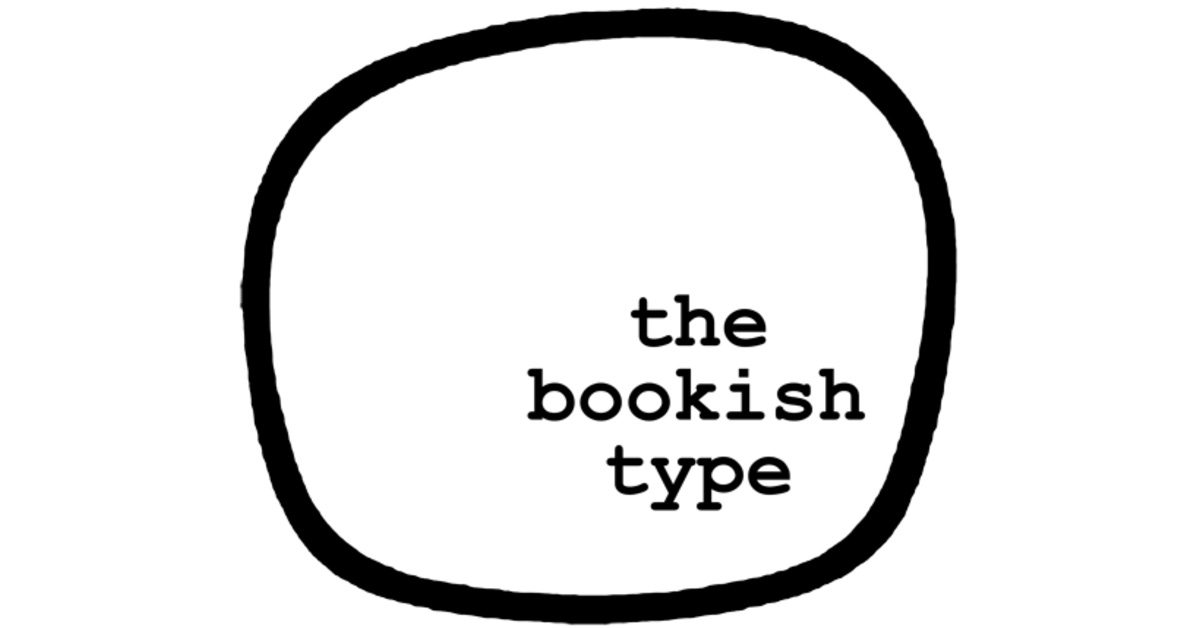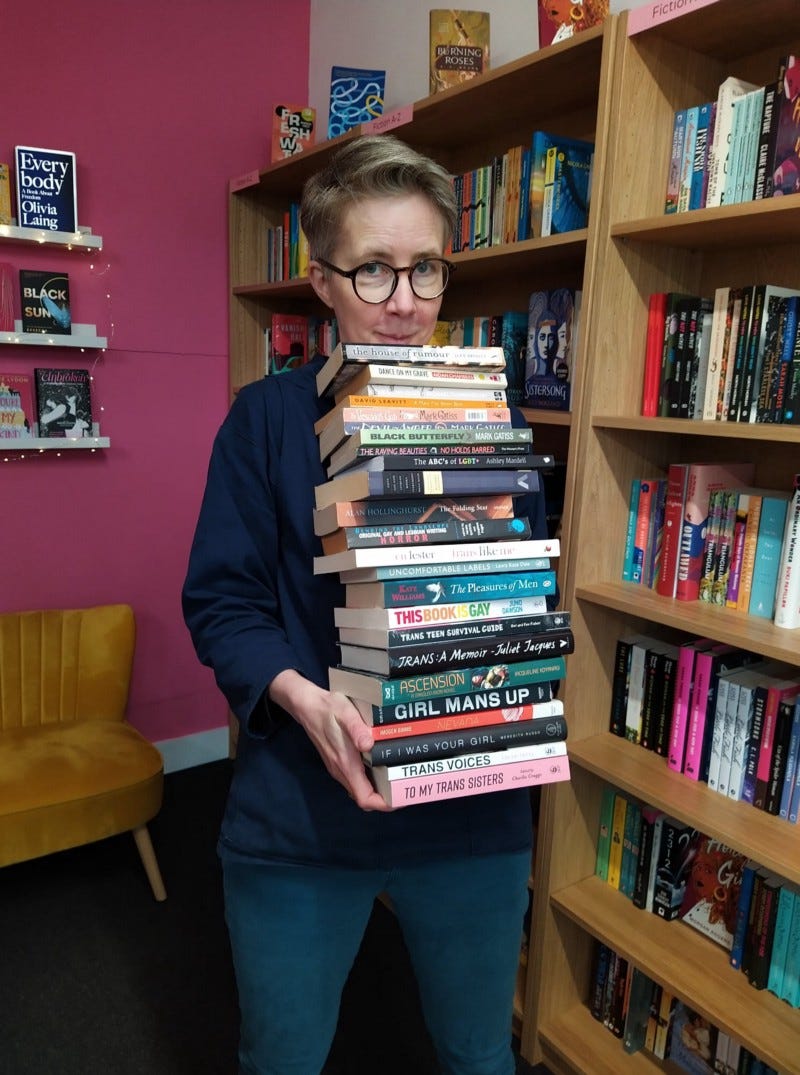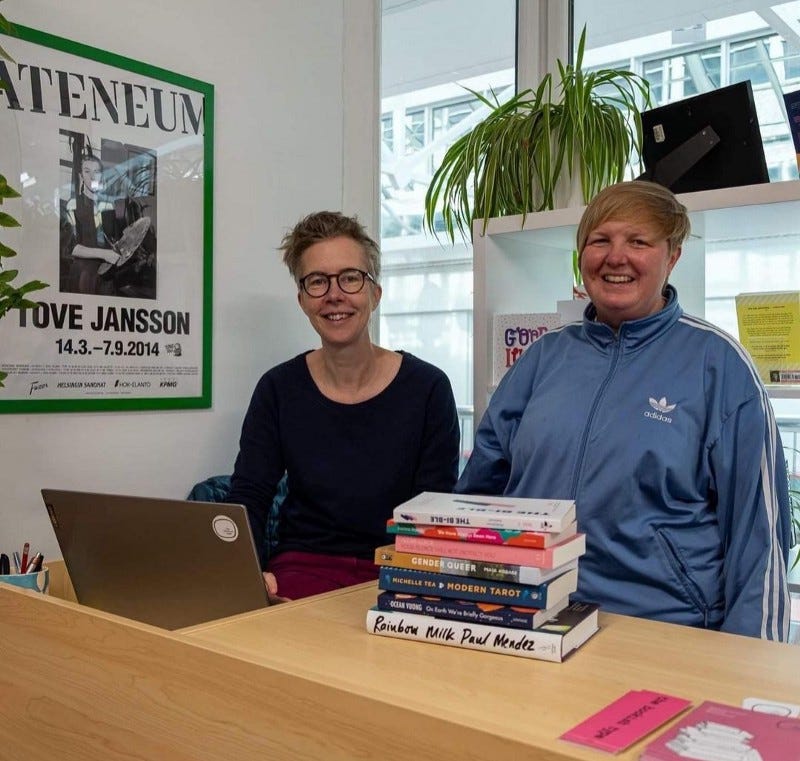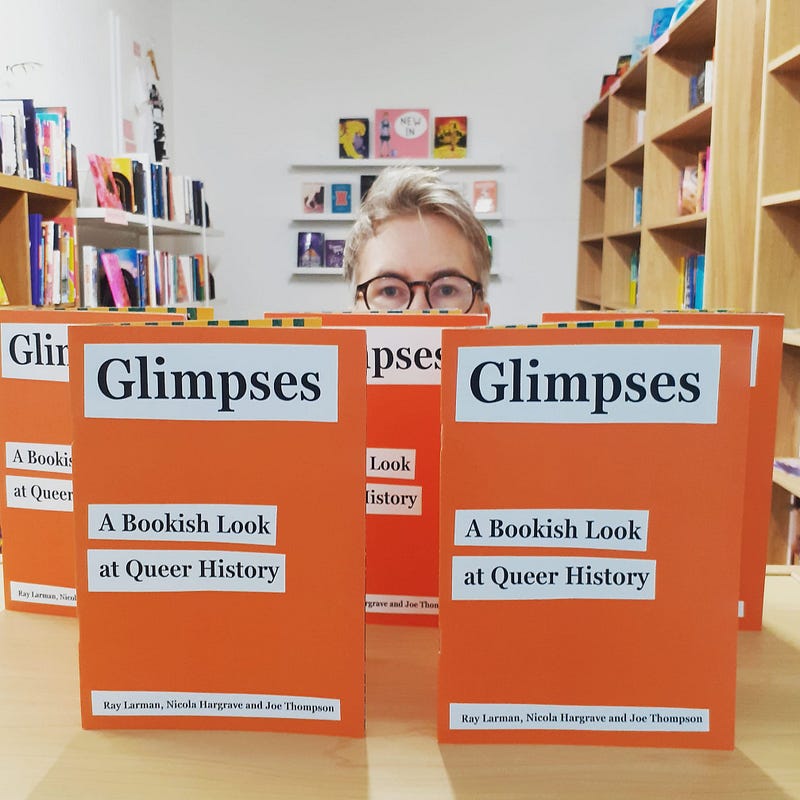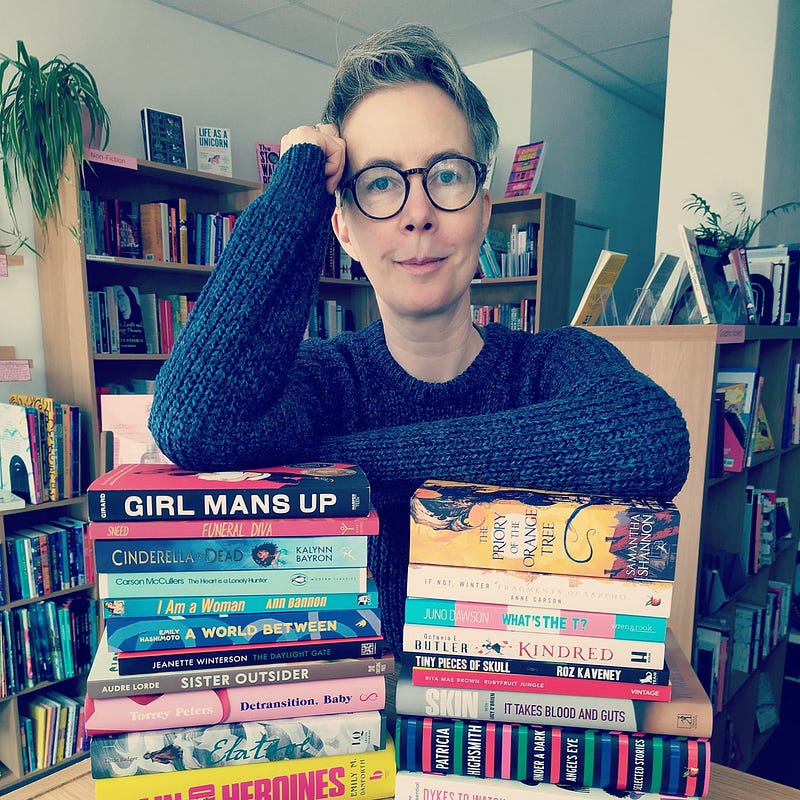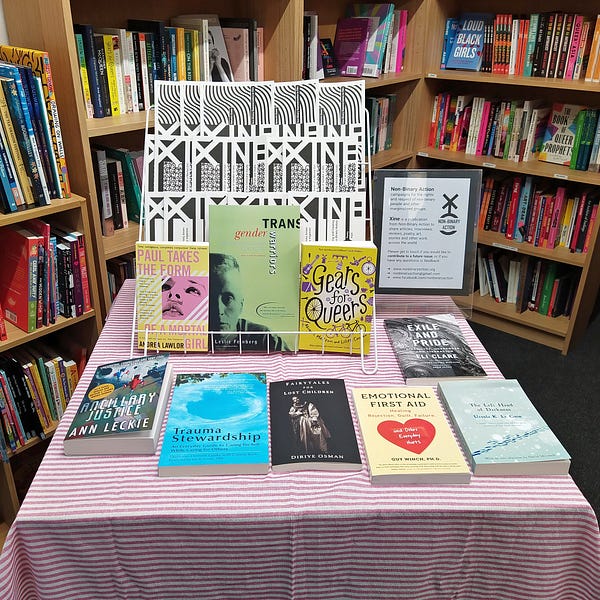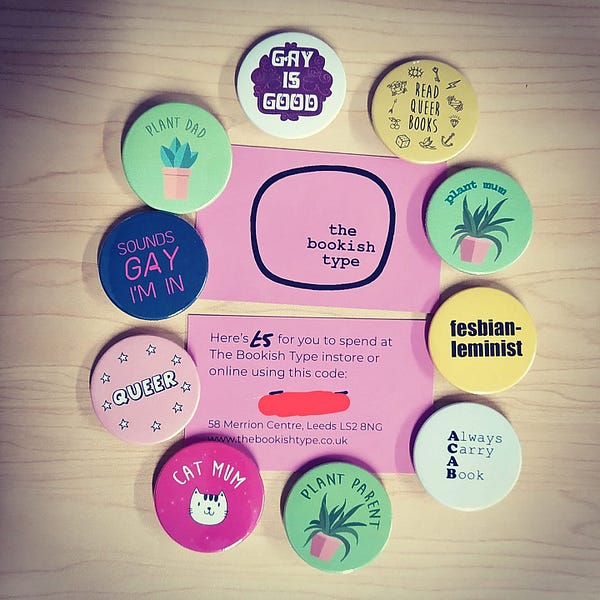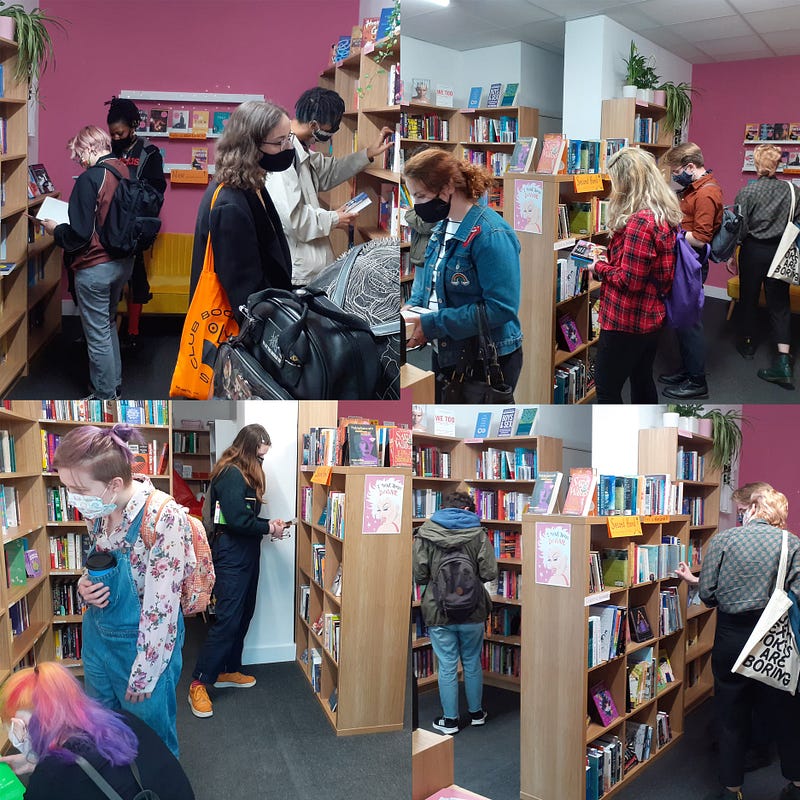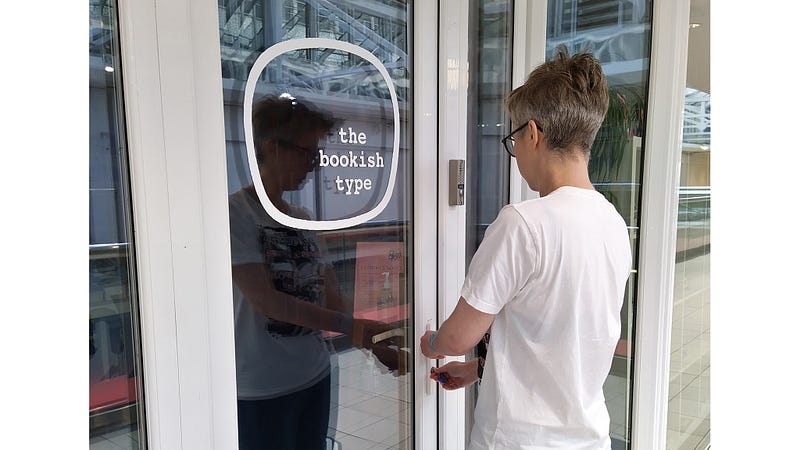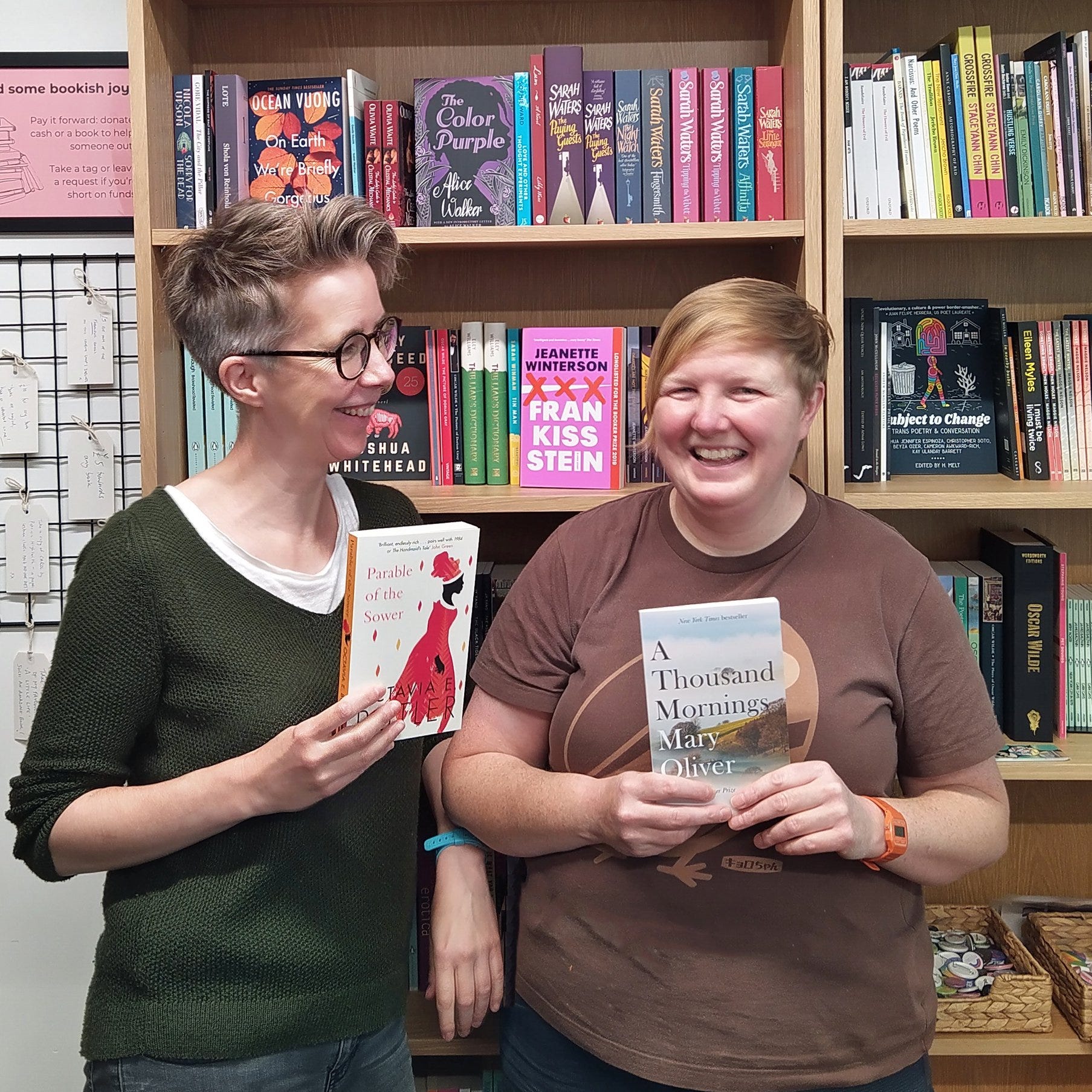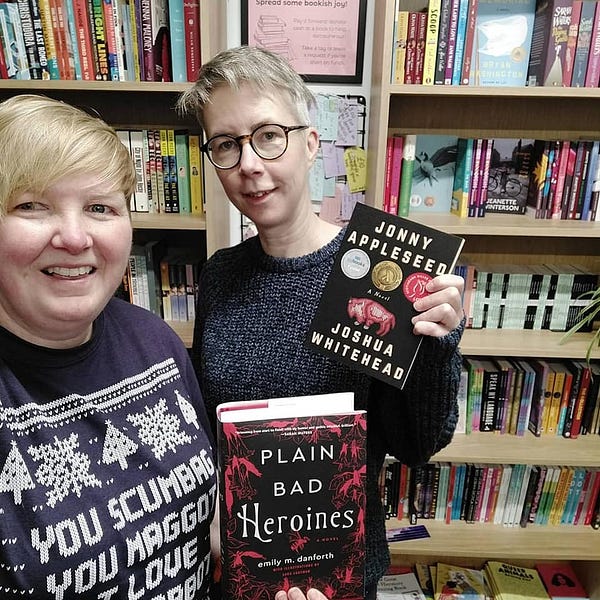The Bookish Type — Independent Queer Bookshop : An Interview with Ray Larman (she/her)
The Bookish Type is a queer indie bookshop run by Nicola and Ray. They love having a good browse in alternative bookshops and the…
The Bookish Type is a queer indie bookshop run by Nicola and Ray. They love having a good browse in alternative bookshops and the inspiration for The Bookish Type has come from lots of places they have visited over the years: Page One, Gay’s the Word, Category is Books, Housmans, Portal and many more.
The bookshop is based at the Merrion Centre, Leeds where they sell a range of queer literature including novels, children’s books, YA, memoirs, non-fiction, poetry and graphic novels. They champion LGBTIQA+ authors and books with queer themes or characters because they know the importance of representation and want to celebrate all the amazing queer books in publication.
I had a conversation with Ray about seeking solace amongst the bookshelves, the ups and downs of setting up the bookselling business and the queer literature you should be reading.
Excerpts from the Interview :-
Q1) Hi Ray, thank you for doing this interview or Q&A session with me. I am really thrilled and honored to have you here for this collaboration. Can you tell us about the Bookish Type and your role in it? Did you always wanted to get into bookselling business ecosystem? What was the vision and mission you projected when you founded this phenomenal book heaven?
Ray : The Bookish Type is an independent queer bookshop in Leeds. I set it up with my partner Nicola having been inspired by other radical or queer bookshops that we’d visited in the UK like Housmans and Gay’s The Word. We started out running pop-up bookstalls around Leeds in 2019 and then started to look for premises; Covid then hit the UK so we set up a website and started selling online before taking the risk of opening up our shop in September 2020.
We wanted to create a bookshop that was friendly and comfortable, a space where people could see the incredible range of queer literature that exists. We also wanted queer people to see themselves represented on our shelves and to feel validated by that. Our shop is for quiet queers and bookish types — it’s important to have a LGBTIQA+ space that is open during the day, multigenerational and doesn’t revolve around alcohol.
Q2) What do you love most about being a bookseller? What’s your bookselling philosophy? Curating a bookstore where you face a wall of books telling queer /LGBT stories, talking about issues which are often suppressed must be a hugely liberating feeling, right?
Ray : I love being in the bookshop and chatting to people, giving recommendations and unpacking the deliveries. I’m not sure that it’s a ‘hugely liberating feeling’ for me when I look at all our books because I’m looking at them every day! But it means a lot for our customers to see so many queer books all in one place. It’s always a delight to see people getting excited about the bookshop when they walk through the door.
Q3) What considerations do you keep in mind while curating the bookstore? Do you always prefer to have Best Seller on the shelves? Or does the Bookstore provide a platform to aspiring/underrated writers as well?
Ray : It’s about having a range of books on display to appeal to different customers. We always try to represent the diversity of the LGBTIQA+ community and different reading tastes. We’ll have best sellers out on the shelves or in the window but we’ll also champion more obscure books that perhaps haven’t had a big media campaign behind them. We have a ‘Books We Love’ section in the shop where we promote books through mini written recommendations. We also have a ‘New In’ section to showcase what has just arrived.
Q4) How The Bookish Type is raising awareness about gender inequality in the literary sphere?
Ray : It’s a given that we promote diversity, and gender equality is part of that. The books we have in the shop show the range of LGBTIQA+ literature but also how our identities go beyond just gender and sexuality. It’s important that we think about race, class and disability and how they intersect with gender and sexual identities. No one is just ‘gay’ or just ‘trans’ — we’re all complicated beings and it’s important that the books that we sell reflect that.
Q5) Is there anything you’d wish readers paid more attention to in the store? A genre? Or an author?
Ray : I’d love to sell more Indigiqueer fiction — books about queer Indigenous people. I loved reading ‘Jonny Appleseed’ by Joshua Whitehead, the story of a ‘Two-Spirit/Indigiqueer NDN glitter princess’. We also stock Whitehead’s anthology of speculative fiction ‘Love After the End’, as well as Billy-Ray Belcourt’s ‘A History of My Brief Body’, Darcie Little Badger’s ‘Elatsoe’ and Lindsay Nixon’s Nîtisânak. All of these books deserve more attention than they get.
About - Joshua Whitehead
Joshua Whitehead (he/him) is a Two-Spirit, Oji-nêhiyaw member of Peguis First Nation (Treaty 1). He is currently a…www.joshuawhitehead.ca
Writing - Joshua Whitehead
"You're gonna need a rock and a whole lotta medicine" is a mantra that Jonny Appleseed, a young Two-Spirit/Indigiqueer…www.joshuawhitehead.ca
Q6) Over the years, have you noticed any interesting trends or development in the publishing industry in range of trans-relevant titles getting published, an increase in LGBT+ YA and pro-diversity kids’ books?
Ray : There are definitely more trans titles being published — the fact that Torrey Peters was on the Women’s Prize long list is fantastic. The boom in queer YA continues which is great to see and there is certainly more diversity in kids’ books. ‘Julian is a Mermaid’ and ‘Julian at the Wedding’ by Jessica Love are two shop favourites — Julian is a delightful gender non-conforming child who is completely accepted in both books. Also, the illustrations are just gorgeous!
Q7) A new generation of readers has begun to think about building community not only in terms of a locality and physical space, but also as an online space. Successful independent booksellers have woven both communities together by developing a more direct and personal relationship with their customers through Instagram, Facebook, Twitter, and Tumblr. Consumers often share their bookstore experiences on Instagram using the hashtag #bookstagram: that hashtag has been used on more than 35 million photos on the site since 2010. Do you think Instagram is acting as a catalyst in boosting the presence of bookstores? How has this hashtag or social media channels helped the Bookstore?
Ray : We have worked hard to create a good relationship with our customers through social media, predominantly Instagram, and it certainly helps to promote events and products, although we don’t use #bookstagram. It’s important to us that our bookshop community is more than just online, because we want to appeal to different generations and we’re wary about older queer people being excluded — not everyone is on Instagram (or even facebook and twitter)! Also, people are craving real life experiences because everyone’s so fed up of the Covid restrictions so as a community bookshop we want to be running more events in the shop like Second Hand Sundays (selling second hand queer books) and author book signings.
Q8) What are the challenges usually faced by an independent bookstore especially yours who represents queer people? What was the biggest struggle you faced while starting The Bookish Type? How those struggle shaped you as a person?
Ray : Battling against the big players in the book industry is obviously a challenge. Perhaps the biggest challenge running a queer bookshop is that people outside of the queer community don’t really understand what you are selling or why. When we ran bookstalls in the past, people sometimes thought we were selling porn!
We’ve become more confident now that the shop is up and running. When we were starting out, one of the key struggles was with ourselves: could we set up a bookshop? Would people come to it? So our confidence has grown massively since the first bookstall in 2019.
Q9) Could you tell us about the virtual or digital opportunities during the lockdown, and how far the Bookstore team efforts have been successful?
Ray : Thankfully, Nicola set up our website just as the first lockdown hit the UK so we have traded online since then and obviously that kept us going through subsequent lockdowns. We hand delivered books around Leeds during the pandemic which felt like a really positive thing to do — people loved it when we turned up on their doorstep with books for them.
We’ve held successful Zoom events during the pandemic so we had Meg-John Barker talking about their new book ‘Sexuality’. We also created a zine called ‘AIDS: Reflections on a Crisis’ and had a launch for it involving two local activists who had been involved in ACT UP and HIV prevention work.
Home - Rewriting The Rules
Edit descriptionwww.rewriting-the-rules.com
Q10) And, lastly what are your future plans for the bookstore?
Ray : We’d love to expand and have even more books, but the main thing we want to do at the moment is to run more community events. We had a really successful Second Hand Sunday recently that raised nearly £500 for ‘What Can We Do?’ a collective who fundraise for black and brown trans and non-binary people for their medical, mental health and housing needs. We want to do live events with authors and we have plans to do queer history walks around Leeds.
Thank you so much for collaborating in today’s post Ray Larman!
It’s a pleasure!
If any of my readers here , wish to know more about the bookstore. Do open the links mentioned below . They have a wonderful informative , articulated and well-curated website.
Website : https://thebookishtype.co.uk/
Facebook : https://www.facebook.com/TheBookishTypeLeeds/
Instagram : https://www.instagram.com/thebookishtypeleeds/
Twitter : https://twitter.com/TypeLeeds





